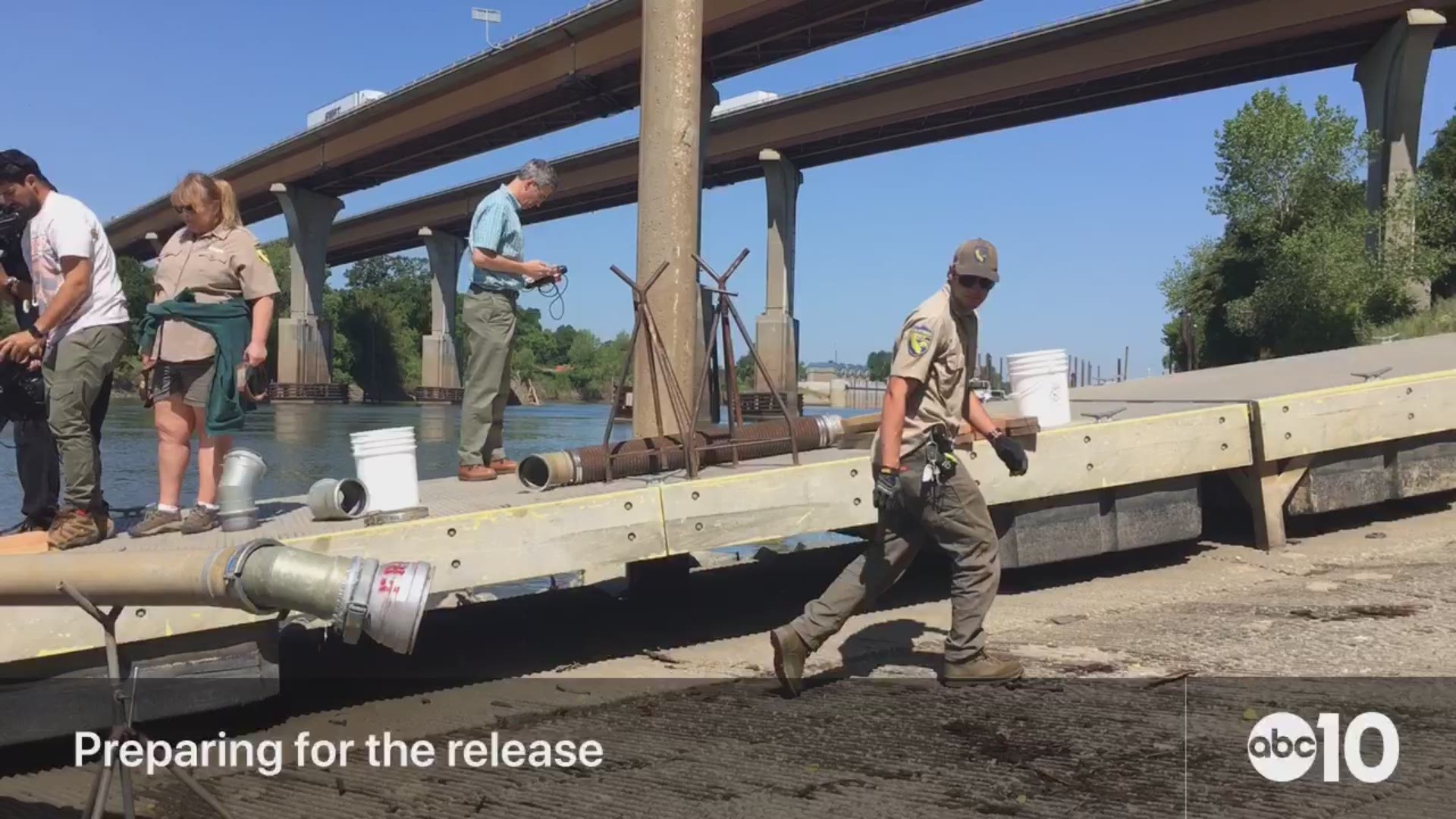ANDERSON, Calif. — The U.S. Fish and Wildlife Service released 185,000 marked juvenile winter-run Chinook salmon into the north fork of Battle Creek for the second year in a row, a continuing effort to jump-start the population.
“Last year, approximately 200,000 hatchery-reared winter-run Chinook salmon were released into Battle Creek,” said Dan Castleberry, Assistant regional director for Fish and Aquatic Conservation with the U.S. Fish and Wildlife Service. “Those fish are expected to return to Coleman National Fish Hatchery in 2020.”
While California is home to many native salmon species, winter-run Chinook salmon face unique challenges during their life cycle.
These fish are historically spawned in the cold, clear waters of the Upper Sacramento, McCloud and Pit Rivers as well as in Battle Creek. The construction of Shasta and Keswick Dams, combined with an extensive hydroelectric project on Battle Creek, blocked access to their native habitats and forced them to spawn in the unhospitable waters downstream of Keswick Dam.
RELATED:
Today, Sacramento River winter-run Chinook salmon are listed as an endangered species under both federal and state law. NOAA Fisheries also considers winter-run Chinook salmon among eight marine species most at risk of extinction.
The single remaining population of Sacramento River winter-run Chinook salmon has persisted in large part due to federal and state agency-managed seasonal cold water releases from Shasta Reservoir, to protect sensitive salmon eggs from the summer heat, and through the release of hatchery-produced juvenile winter-run Chinook salmon from a conservation program at the U.S. Fish and Wildlife Service’s Livingston Stone National Fish Hatchery. However, re-establishing self-sustaining populations in other locales is important for the recovery of these fish.
________________________________________________________________
Heavy rains are causing confusion along the American River--confusion for salmon. During heavy rain storms, the intrepid fish are swimming up Cordova Creek in Rancho Cordova. It’s unusual for salmon to be in Cordova Creek because it's actually a drainage ditch.

